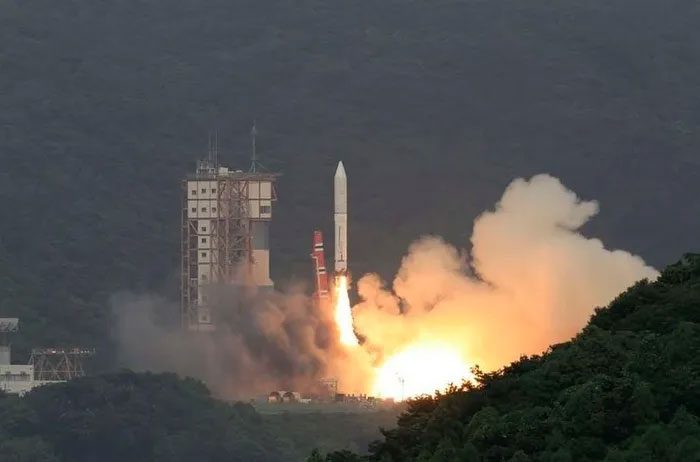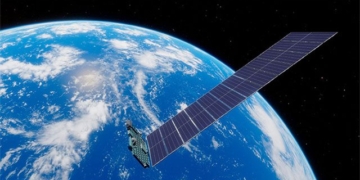The Japanese Epsilon S rocket engine test faces major setbacks, resulting in a significant explosion and fire at the Tanegashima Space Center testing site.
This incident severely impacts Japan’s national space missions and satellite launch plans once again.

A Japanese Epsilon rocket. (Photo: Space).
The Japan Aerospace Exploration Agency (JAXA) reported that around 8:30 AM local time on November 26, an unusual serious incident occurred during the ground burning test of the second stage of the solid-fueled Epsilon S rocket. Approximately 120 seconds after the rocket’s engine was ignited, an explosion occurred, leading to a large fire at the Tanegashima Space Center in southwestern Japan.
So far, there have been no confirmed reports of casualties resulting from the testing incident. However, due to the failed test, JAXA announced a halt to the engine tests of the Epsilon S rocket and is conducting a detailed investigation into the incident.
The Epsilon S is the latest generation rocket in the Epsilon engine series, expected to replace the current Epsilon rocket system while enhancing Japan’s competitiveness in the rapidly growing rocket engine market. This rocket is a collaborative development between JAXA and the aerospace division of the IHI Corporation. Epsilon S is scheduled to launch into space in the current fiscal year. However, this marks the second incident of explosion during the testing of this rocket engine.
Previously, on July 14, the Epsilon rocket engine also exploded about 50 seconds after ignition at the Noshiro Test Center in Akita Prefecture. JAXA concluded that the explosion was caused by a part of the engine’s ignition equipment melting due to heat, leading to a failure of the insulation inside the fuel tank and causing abnormal combustion.




















































